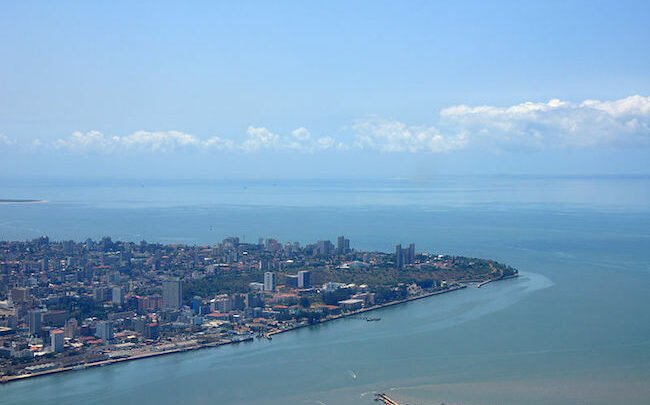
By Gil Kapen
In a time of fake scandals when many breathless accusations turn out to be hollow, the tale of Mozambique’s failed attempt to build a fishing fleet and coastal security system, leading to its $2 billion debt default, is fast moving into this dubious category.
Press reports and U.S. federal prosecutors claimed the Mozambique maritime projects were an elaborate scheme covering for bribes and kickbacks between country officials, European bankers and a shipbuilder, Middle East-based Privinvest, which was hired to build a modern fleet of fishing and security vessels and shipyard equipment for the southern African nation.
But in a New York courtroom where a Lebanese salesman for the shipbuilder, Jean Boustani, stands trial in the matter, the key allegations behind the scandal story are collapsing under the stiff challenge of plain facts.
No “hidden debts.” The matter has been dubbed, among other things, the “hidden debt scandal” based on statements by the International Monetary Fund that the Mozambique government borrowed the $2 billion in secret. But an economist for National Economic Research Associates testified that the IMF knew all along about the debt and acknowledged at least one loan in an email to an investment fund in 2015 that was presented to the court.
No “hidden projects.” Aside from the difficulty of hiding dozens of new fishing boats and security vessels plus radar facilities and shipyard equipment, the Boustani defense has demonstrated that the Mozambique government knew about the projects in detail and even displayed the vessels to the public in during a 2014 celebration. The press covered the projects along with a tour by Mozambique officials of the shipbuilder’s facilities in Germany. A U.S. military attaché praised the need and value of the projects and certainly reported back to Washington. And some of the vessels were even stored in a parking lot below the IMF offices in Maputo.
No “phony projects.” Far from being a cover for fraud, the projects were widely embraced by development experts as key to turning around Mozambique’s poor economy by allowing it to benefit from and protect its rich fisheries, windfall offshore gas fields and Indian Ocean coastline where thousands of ships needing repair and maintenance pass. The wisdom of the projects was confirmed recently by an independent assessment by former chief of U.S. Naval Operations Gary Roughead as well as in trial testimony by retired U.S. Navy Admiral Stanley Bryant, who said the contracts for the boats and systems sold to Mozambique were real and appropriate for the country. Bryant called the Privinvest deliveries “fantastic” and both cutting-edge and what the country needed.
No “bribes” or “kickbacks.” As Boustani testified, the payments made to land the maritime project contracts were commonplace consulting fees paid to agents who helped introduce his employer to Mozambique officials who could negotiate the transactions. The jury was presented with extensive documentation that the projects were approved only after years of study and discussion verifying proof of need, technical review and exchanges, and layers of legal and other vetting, undermining claims the deals were phony and greased by illicit payments. In addition, other payments were actually long-term investments in Mozambique, which Privinvest still has in real estate, logistics and telecom.
As a slam dunk, Boustani proved that prosecutors had misread and misinterpreted a document pivotal to their case, an email they alleged had laid out the shady payments. In fact, the email did not detail disbursements to officials but proposed budget items for legitimate business purposes. In one embarrassment, prosecutors asserted the letter “A” appearing several times in Boustani’s email referred to the Mozambique president’s son, when—as many accountants would recognize—it was shorthand for assets in a long-term account.
No “mastermind of scandal.” Initial prosecutor claims that Boustani engineered the whole deal and defrauded U.S. investors weakened as the trial went on. While the bankers have admitted wrongdoing and offered conflicting and spotty testimony, the jury heard that Boustani had nothing to do with the financing or debt issuance, nor were any harmed U.S. investors named. He was also not charged with bribery under the Foreign Corrupt Practices Act.
Most important, the shipbuilder upheld its end of the deal, delivering the vessels and equipment as contracted, and sought repeatedly to implement the projects. This was consistent with Privinvest’s long-term interests and investments in advancing Mozambique’s economy across a range of industries including telecom and logistics—not the “cut and run” associated with fraudulent schemes or global shipbuilders.
For Boustani’s part, the real story in the Mozambique matter is less gripping than a “$2 billion fraud and money-laundering scheme” that prosecutors alleged he masterminded. Sadly, for complicated internal reasons, the Mozambicans simply abandoned the projects and then defaulted on the $2 billion in debt. While the real story has gotten less attention than the torrid scandal claims, it could provide a more important lesson learned for the development of Africa.
Gil Kapen is a Special Advisor at the American Jewish International Relations Institute and a former staffer on the House Subcommittee on Africa.




